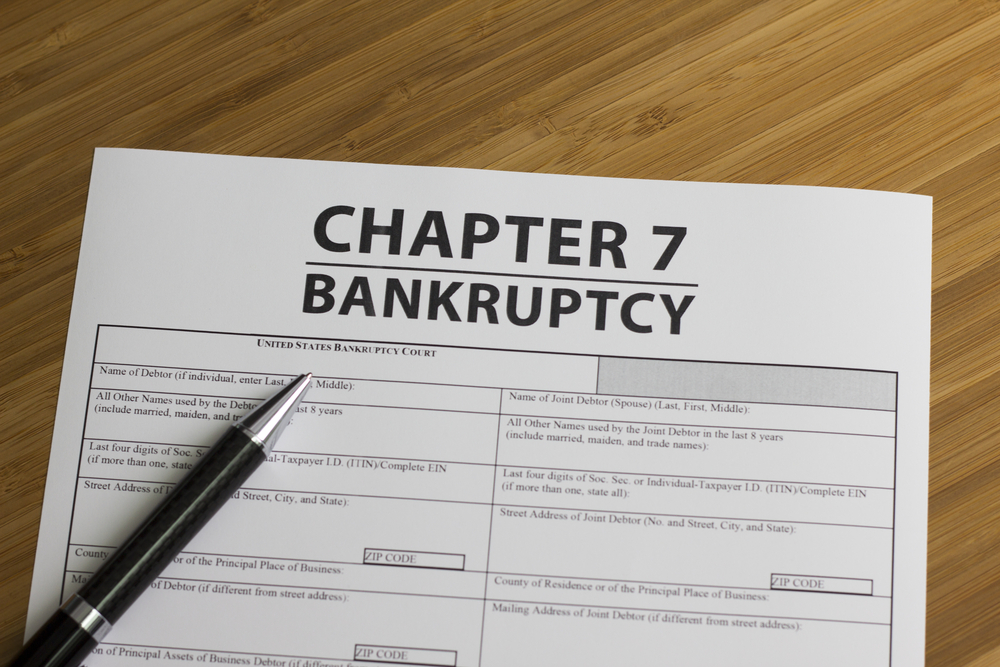Can a Bankruptcy Settle Your Tax Debts?
- Jun 15, 2022
 Bankruptcy is a commonly used method to help individuals struggling under crippling debts. Filing for a bankruptcy can restructure or discharge some debts entirely. However, it’s important to understand the different types of bankruptcy and whether or not the debts you have actually qualify to be discharged at all. Tax debt, for example, is one type of debt that cannot always be discharged by a bankruptcy. Keep reading to learn more about whether or not a bankruptcy could relieve you of your tax debt, and what your options might be for getting your back taxes under control again.
Bankruptcy is a commonly used method to help individuals struggling under crippling debts. Filing for a bankruptcy can restructure or discharge some debts entirely. However, it’s important to understand the different types of bankruptcy and whether or not the debts you have actually qualify to be discharged at all. Tax debt, for example, is one type of debt that cannot always be discharged by a bankruptcy. Keep reading to learn more about whether or not a bankruptcy could relieve you of your tax debt, and what your options might be for getting your back taxes under control again.
Chapter 13 Bankruptcy Will Not Discharge Your Tax Debt
Chapter 13 is the most commonly filed type of bankruptcy, but it’s important to be aware that this will not discharge or settle any of your debts outright—tax debt included. Chapter 13 bankruptcy is known as a voluntary restructuring of your debts. Essentially, the court will consolidate all your debts into a monthly payment plan that lasts between three and five years. You will make those monthly payments, and your creditors will each be paid their share out of those payments—the IRS included.
So, if you simply need to restructure your debts, a Chapter 13 will do so with all of them, including your tax debts. However, if taxes represent your only major debt, you likely don’t want to restructure them in this way. Filing bankruptcy has serious consequences for your credit score, and the IRS offers repayment plans that will allow you to restructure your tax debt without those kinds of consequences—but we’ll discuss that later in this article. For those who have many debts they need to consolidate, however, it’s worth knowing that Chapter 13 bankruptcy can include your tax debt.
Chapter 7 Can Settle Your Taxes in Certain Circumstances
Chapter 7 bankruptcy is known as a liquidation bankruptcy. This means selling off a great deal of your property to eliminate your debts, but often allows debtors to settle for a lot less than what they owe. Tax debts can be included in a Chapter 7 bankruptcy. However, certain circumstances must apply if you hope to have the debt discharged in the bankruptcy proceedings. Those circumstances include the following:
- The debt is only federal or state income tax debt. Other types of taxes, like payroll taxes or fraud penalties, cannot be eliminated through a bankruptcy.
- You didn’t purposefully evade tax payments or file a fraudulent return. These actions are unlawful, and the debts you incurred as a result cannot be discharged in this way.
- Your tax debt must be at least three years old. So, if you have tax debts from the year 2021, they would have been due in 2022, and therefore cannot be discharged via Chapter 7 bankruptcy until 2025.
- You filed your return. To eliminate a tax debt, a return for that debt must be on file. If you filed late (without an extension), you did not file a true return and typically won’t be able to eliminate that debt.
- The tax debt cannot have been assessed by the IRS within the last 240 days before you file for bankruptcy. If the IRS suspended collection efforts due to a compromise or previous filing, that deadline may be extended.
If all of the above circumstances are true, then you may be able to eliminate your tax debt via a Chapter 7 bankruptcy filing. However, again, it’s generally more beneficial to pursue IRS settlement options first if your taxes are the only debt you’re hoping to discharge in this way.
Chapter 7 Bankruptcy and Tax Liens
It’s important to note that, if you have a tax lien on your property prior to filing for a bankruptcy, this can make the situation even more complicated. Unfortunately, even if all of the circumstances described above are met, a bankruptcy will not eliminate prior tax liens on your property. A bankruptcy will prevent the IRS from pursuing collection on your tax debt, however, the lien will remain. If you want to sell your property in the future, you’ll need to pay off the lien to do so. This can also minimize your ability to follow through on the liquidation of assets often required in a Chapter 7 bankruptcy.
Pursuing Other Options
As mentioned earlier, we strongly encourage all tax debtors to pursue IRS settlement options and repayment plans prior to seeking a bankruptcy. You can fill out the brief survey on our home page or contact one of our tax debt experts to see if you qualify for a repayment plan so that you can settle your tax debt without needing to declare bankruptcy.
STOP THE IRS!
Settle for less & Protect your assets
Never Call the IRS without Speaking with our Pros First!